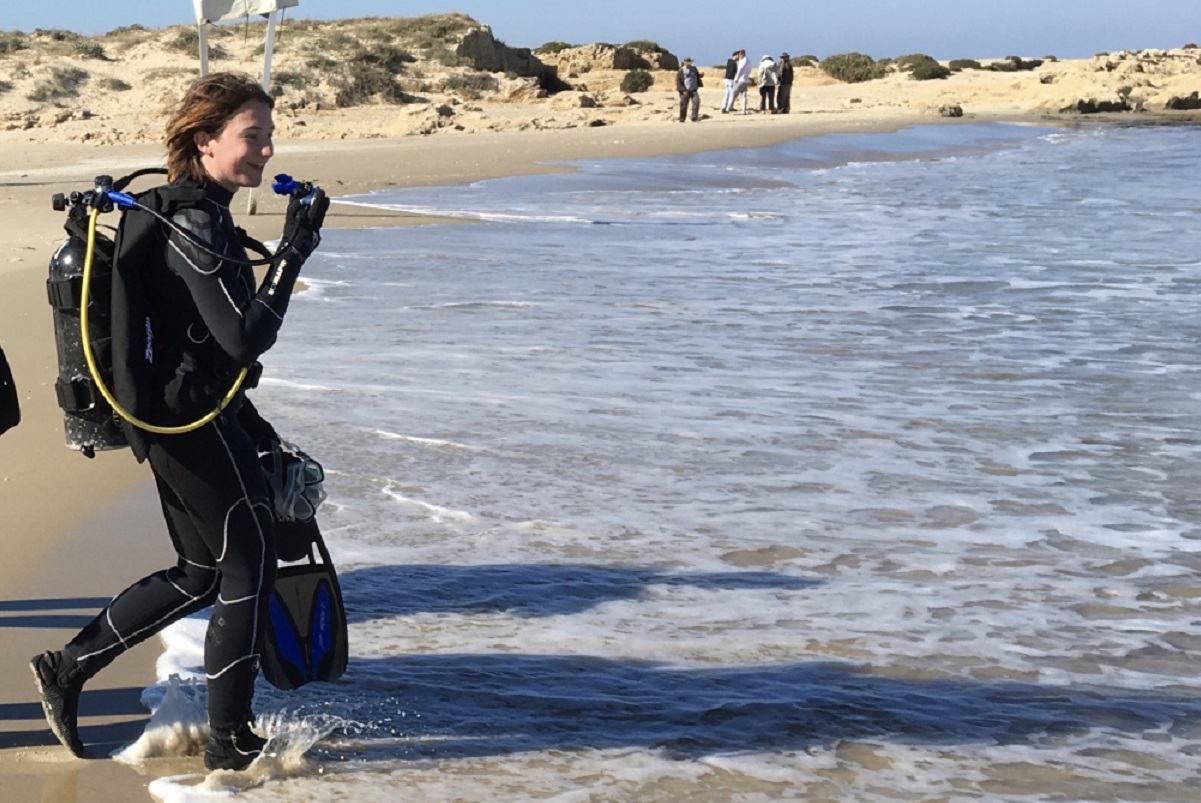
Fit sat down with researcher Chelsea Wiseman to understand how her work is helping to build a more comprehensive understanding of early human behaviour, and why learning to scuba dive was necessary to her quest.
What made you decide to work in archaeological research ?
During my undergraduate studies, I joined an excavation team at a prehistoric site called Çatalhöyük, in Turkey. I was captivated by the idea of conveying stories about people in the past from the materials they left behind, particularly at sites where there are no written records to rely on. I discovered around this time that numerous prehistoric sites were inundated by sea-level rise. I then learned to scuba dive to work on these submerged sites, which have so much to tell us about an unknown part of history.
What is your current research about?
It’s about submerged landscape archaeology. I’m undertaking a comparative study between submerged environments in Haifa, Israel, including 17 prehistoric sites dating to the Neolithic period, and Australia, where we have not yet recorded any submerged Indigenous sites. I’ll learn how to extrapolate information from a submerged landscape, which will eventually help us to locate similar underwater archaeological sites in Australia.
How will your research benefit the wider community?
By furthering our understanding of human history, especially how people interacted with the oceans and coasts over tens of thousands of millennia.
We can learn about how humans first developed watercraft and seafaring, how they dealt with climate change and sea-level rise at the coastal margins, and how anatomically modern humans first dispersed across the globe.
What has been your proudest moment as a researcher?
I recently gave a presentation about my first year of PhD research to my department at Flinders University, which was both a little nerve-wrecking and hugely fulfilling. I was proud to see what I’ve accomplished, because when you keep working through day-to-day tasks as a PhD student, it can be easy to miss the progress you’re making.
What has been your most challenging moment as a researcher?
Fieldwork is a lot of fun and very rewarding, but it can also be stressful. Things can change very abruptly, so problems arise and require you to adapt very quickly. Sometimes equipment breaks and you need to troubleshoot. Sometimes there are setbacks, or the sea conditions don’t allow you to work. You never quite know what will happen next. Still, I find overcoming all the challenges that come with fieldwork is one of the most satisfying parts of my research.
What advice would you give future researchers?
Seek out good mentors. I’m fortunate to have several knowledgeable thesis supervisors and mentors, and I’m constantly grateful for their encouragement and support. You’ll have to keep asking questions, and always be curious about your chosen field. Above all else, stay resilient. Academia and research can be very challenging at times, so persevere, one step at a time.

